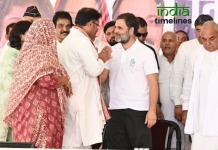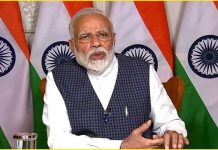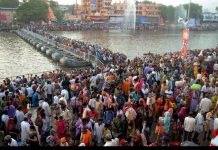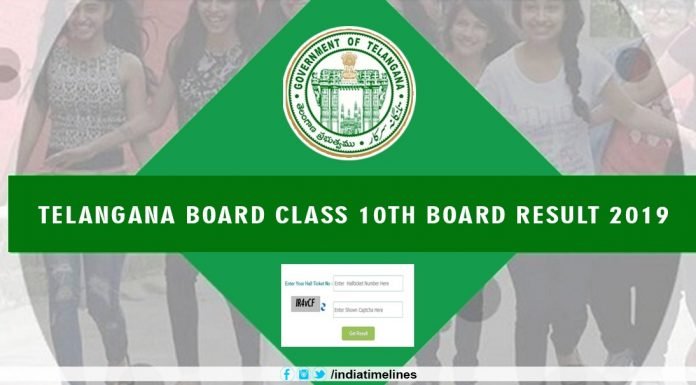
The debate over the caste census has once again taken center stage in Indian politics. Rahul Gandhi, a key figure in the opposition, has recently made headlines by claiming that PM Narendra Modi had previously stated there would be no caste census in India. However, the opposition’s unwavering stance on this issue has sparked a wave of discussions, and even some members of the Rashtriya Swayamsevak Sangh (RSS) have shown support for the idea. This article delves into the political implications of the caste census, the changing narratives, and why this issue has become a pivotal moment in India’s socio-political landscape.
The Importance of Caste Census in India
The caste census is not just a matter of collecting data; it’s a powerful tool that could reshape India’s approach to social justice and equality. For decades, the last comprehensive caste census was conducted in 1931 during British rule, and since then, caste-related data has largely been ignored in national censuses. The need for updated data on caste demographics has been increasingly felt across various political and social circles.
A caste census would provide essential insights into the socio-economic conditions of various caste groups in India. This data is crucial for the formulation of policies aimed at reducing inequalities and ensuring that the benefits of affirmative action reach the most disadvantaged communities. With an updated and accurate caste census, governments can better target welfare schemes, allocate resources more effectively, and address deep-seated disparities that persist in Indian society.
Rahul Gandhi’s Stance: A Bold Challenge to the Status Quo
Rahul Gandhi has been vocal in his demand for a caste census, arguing that understanding the real numbers is crucial for true social justice. He has consistently pushed back against the government’s reluctance to conduct such a census, positioning himself as a champion of the marginalized. In a recent statement, he said, “The government fears the truth. They do not want the real numbers of India’s backward classes to come out because it would expose their failures.”
Gandhi’s stance reflects a broader strategy by the opposition to highlight the disparities and bring caste into mainstream political discourse. The Congress leader’s insistence on the caste census is not just a political move; it is a strategic effort to align with the sentiments of millions of Indians who feel their needs are overlooked.
PM Modi’s Opposition and the Government’s Reluctance
Prime Minister Narendra Modi and the ruling Bharatiya Janata Party (BJP) have been cautious about the idea of a caste census. The government has cited several reasons for its hesitation, including the complexity of conducting such an extensive survey, potential administrative challenges, and concerns over exacerbating caste divisions within Indian society.
Despite these reservations, the opposition’s persistence has kept the topic alive in the public domain. The government’s reluctance to commit to a caste census has often been criticized as an attempt to sideline the interests of backward classes and maintain the status quo. Critics argue that without updated caste data, policy decisions are being made in a vacuum, with little regard for the ground realities faced by marginalized communities.
RSS Members’ Support: A Surprising Shift in Narrative
One of the most significant developments in this ongoing debate is the surprising support from some members of the RSS, the ideological parent of the BJP. Known for its traditional views on social structure, the RSS’s endorsement of a caste census marks a notable shift. Senior RSS functionaries have argued that a caste census would help address long-standing socio-economic disparities and could be instrumental in uplifting disadvantaged communities.
This change in stance from within the RSS suggests that the call for a caste census is gaining traction across a broader spectrum of Indian society, beyond the usual political divides. The RSS’s endorsement could potentially influence the government’s approach, as it adds pressure on PM Modi and the BJP to reconsider their position.
Implications for Indian Politics
The debate over the caste census is more than just a policy issue; it is a reflection of the evolving nature of Indian politics. The opposition’s push for the census has successfully framed it as a litmus test for the government’s commitment to social justice. As regional parties and national opposition forces rally around this cause, the caste census has the potential to become a key electoral issue in the upcoming elections.
For the BJP, conceding to the demand for a caste census could be seen as a compromise, but it also presents an opportunity to demonstrate a commitment to addressing caste-based inequalities. The ruling party’s response to this demand will be closely watched by political analysts, social activists, and millions of voters who are keenly aware of the implications.
Why Caste Census Matters for Social Justice
A caste census is not merely about numbers; it is about the recognition of historical injustices and the need for targeted social reform. In a country as diverse as India, caste remains a critical determinant of access to education, employment, and social mobility. The absence of updated data on caste demographics means that many policies are based on outdated assumptions, which fail to address current realities.
By conducting a caste census, India can take a significant step towards acknowledging the true extent of socio-economic inequalities and work towards a more inclusive society. This data could empower policymakers to design affirmative action programs that are rooted in evidence, thereby enhancing their effectiveness.
Conclusion: The Road Ahead
The ongoing debate around the caste census is a defining moment for Indian democracy. As Rahul Gandhi and other opposition leaders continue to press the issue, the question remains whether the government will heed the call for a comprehensive caste count. With growing support from unexpected quarters, including members of the RSS, the momentum behind the caste census is unlikely to wane. The political landscape in India is rapidly evolving, and the demand for a caste census has become a powerful symbol of the broader fight for equality and representation. As the conversation continues, it will be critical to watch how the government navigate




































